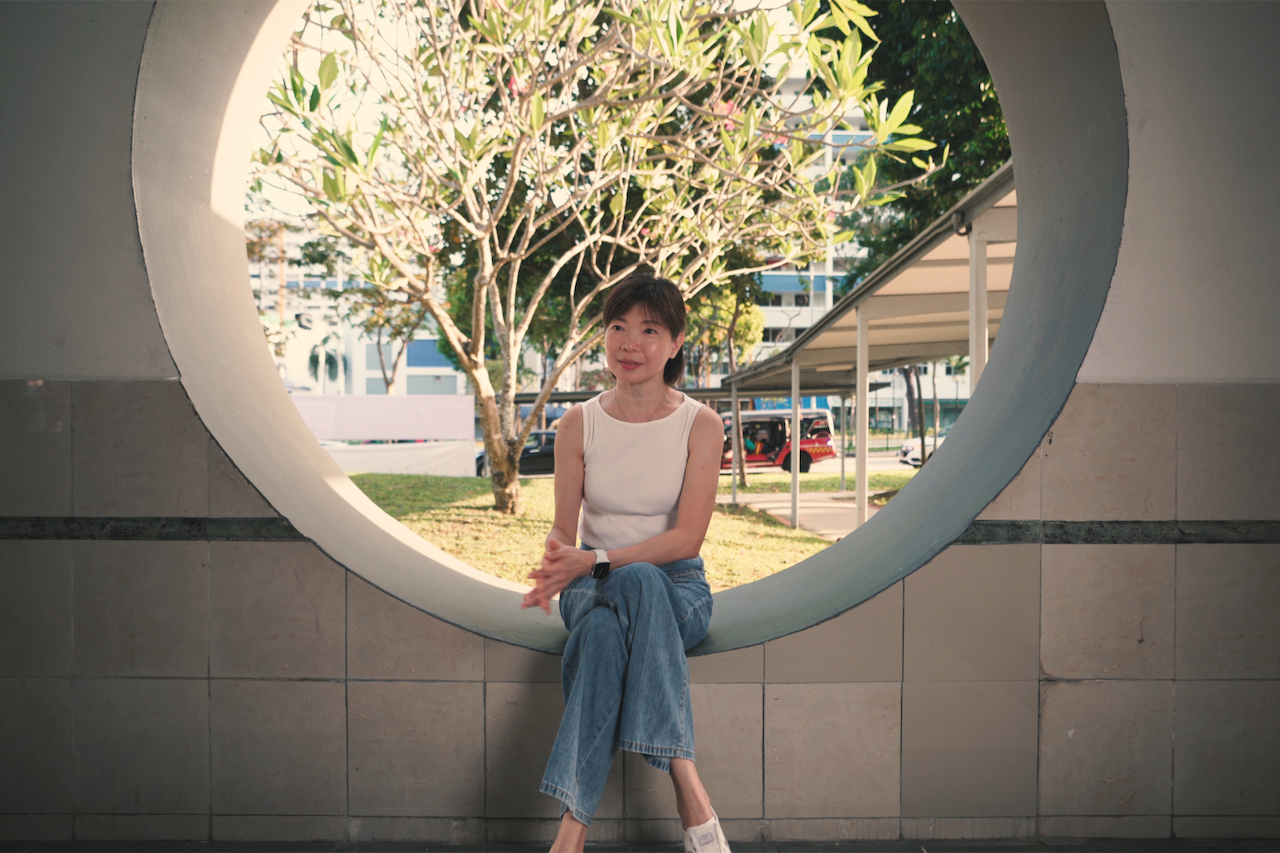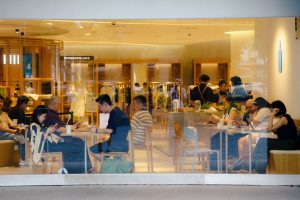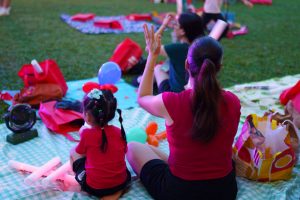RICE does not endorse any political party in Singapore. Refer to our GE2025 content coverage policy for details.
All images by RICE Media.
They’re not getting paid for their time. But they decided to show up anyway.
These are regular folks who spend their weekends walking around neighbourhoods, knocking on doors, and getting politely (or not) rejected by residents who’d rather be left alone. Call it what you want—idealism, stubbornness, a hobby—but what’s clear is this: more ordinary Singaporeans are entering the political arena.
ADVERTISEMENT
Some will go on to enter the spotlight themselves and stand as candidates in the General Elections. Others may choose to lie low but keep things running behind the scenes.
All start as volunteers.
Volunteers like Linda Low, a seasoned campaigner for the Workers’ Party, speak of changing attitudes among her circle—not just in how people vote, but how they talk about politics.
Political work (especially in the opposition realm) is still stigmatised, but less so. Curiosity is replacing cynicism.
Serving the nation may have once meant working within the system—now it may also mean choosing to stand outside of it.
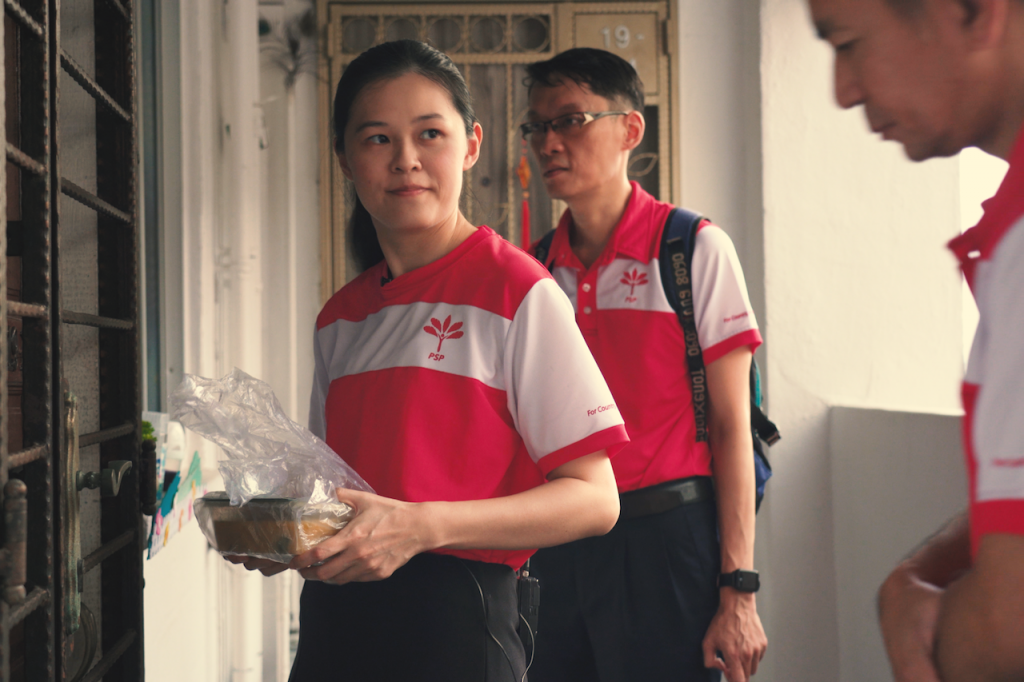
But stepping into the fray is no easy task, especially if one decides to stand with the opposition. Stephanie Tan, a Progress Singapore Party volunteer (and now running to contest for a seat in Pioneer SMC), describes the repetitive labour of door-knocking and restarting on-the-ground efforts when boundaries inevitably change.
Elijah Tay, a young activist, speaks of internal conflict of ideals as someone who has volunteered across multiple parties (and not just the opposition). Ultimately, Elijah stresses the value of political action outside of Parliament because “everyday life is political”.
The emotional toll of this work shouldn’t be underestimated. Volunteers speak of mental exhaustion, balancing their personal lives with political advocacy, and navigating public optics.
“You have to manage your work commitments, family commitments—and yet you are putting time aside to do volunteering. You can get burnt out,” Linda remarks.
“So what is important is to be genuine in what you want to do.”
From Cynicism to Curiosity
The nature of political engagement in Singapore can wear people down. Yet, many persist. Not because they believe in guaranteed success, but because indifference and disengagement feel worse.
ADVERTISEMENT
This tenacity challenges the long-standing narrative of political apathy in Singapore. Perhaps Singaporeans aren’t apathetic, but rather cautious—deeply aware of the risks and the limits of the space they’re operating in.
As more people step forward (especially younger Singaporeans), what’s emerging is not apathy, but a pragmatic form of hope. They know the odds, but choose to participate anyway.
Wider discourse around our systems—like the Group Representation Constituency (GRC) scheme and “incumbent advantages“—illustrate a growing political literacy. These aren’t abstract academic debates. For volunteers, the structure of elections affects the very ground they canvass, the constituencies their parties contest, and the communities they hope to represent.
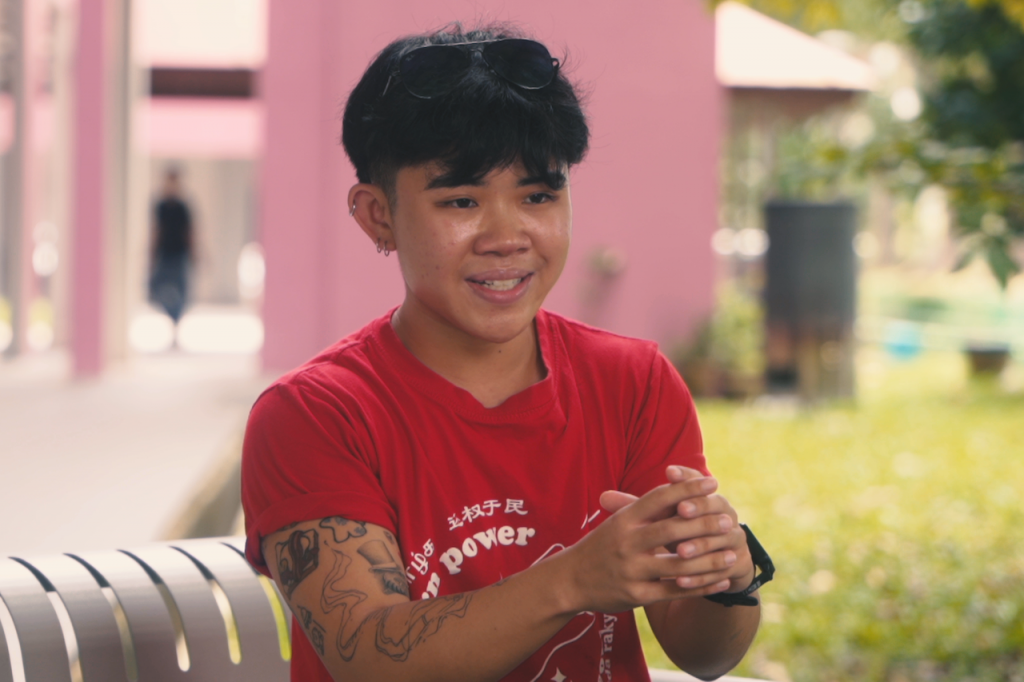
So when ordinary Singaporeans start asking hard questions about fairness, transparency, and access, it suggests not just frustration, but investment.
It signals a deeper belief that these systems can be debated. Perhaps even reimagined.
What, then, is the big vision they’re working towards? It’s a Singapore where real change doesn’t need to wait every five years. Where citizens feel they have a genuine stake in impactful decisions beyond lift upgrades and sheltered walkways. Where disagreement isn’t seen as disloyal or unpatriotic; where civic involvement isn’t met with suspicion.
It speaks to Singapore’s maturing political consciousness: a willingness to show up and do the work. Not for easy and immediate wins, but for the long game of our democratic culture.
The hope we have for political volunteers, regardless of party, is that they’re helping to lay the groundwork for a future where politics feels more accessible, porous, and human.
For GE2025, these voices—tired, hopeful, and persistent—offer a glimpse into what civic participation in Singapore could become. Not flashy, not confrontational, but sustained. And in a society where much of the public sphere remains cautiously curated, quiet persistence despite the odds may be the most radical act of all.

